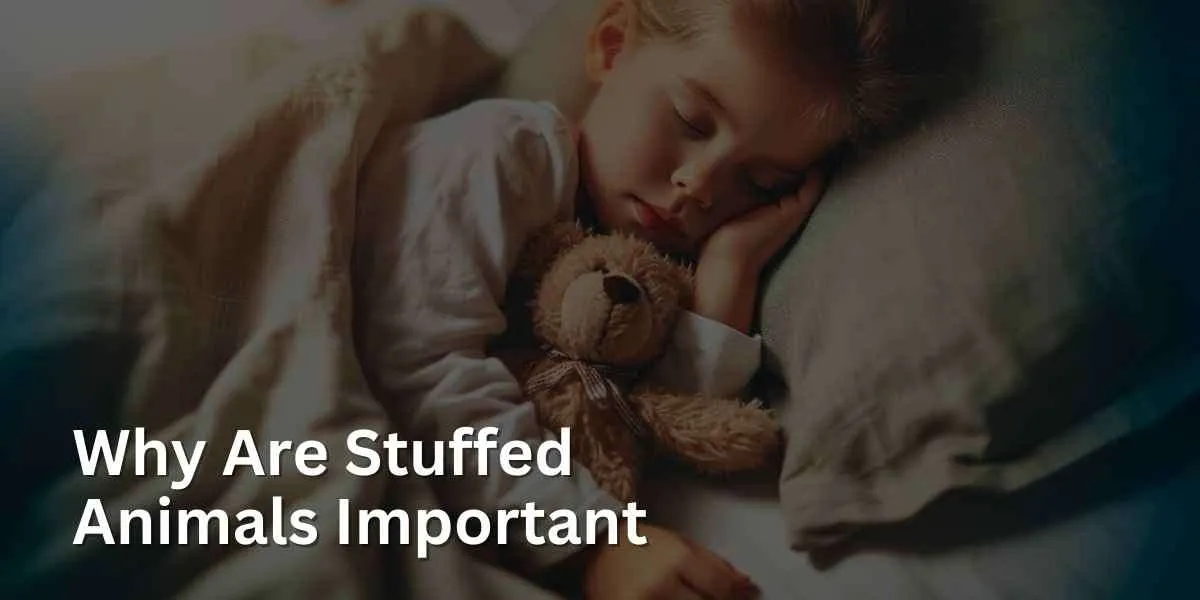Stuffed animals are more than just adorable companions; they play an essential role in shaping a child’s world. Join us as we embark on a journey, exploring how these fluffy friends contribute to children’s development, and why they remain cherished treasures throughout our lives.
Key Takeaways on the Importance of Stuffed Animals
- Stuffed animals offer children a comforting sense of security, fostering emotional growth and resilience.
- These fluffy friends help children learn about emotions, social skills, and empathy, equipping them with essential life skills.
- Engaging in pretend play with stuffed animals opens the door to creativity, problem-solving, and social development, making them an indispensable part of a child’s world.
Comfort and Security
Stuffed animals are often associated with comfort and security, especially for children. These soft toys provide a sense of comfort, familiarity and a good night’s sleep, which can help ease feelings of anxiety and stress.
Children often form emotional attachments to their own stuffed toys and animals, which can serve as a source of comfort during times of separation, such as bedtime or when going to daycare.
Stuffed animals or soft toys of their favorite characters can also provide a sense of security for children. They can act as a protector, providing a sense of safety and comfort in unfamiliar situations. For example, a child may feel more comfortable going to the doctor or dentist if they have their favorite stuffed animal with them. It’s perfectly acceptable to have a plush animals as a companion or best friend to ease loneliness in children who may feel lonely or isolated. After all, humans are social creatures that often crave human contact.
Research has shown that stuffed animals can have a positive impact on mental health. One study found out that about a third of British adults were reported sleeping with their childhood teddies.
A different study published in the Journal of Child Health Care found that children who had a favorite stuffed animal reported feeling less anxious and more secure than those who did not have one.
Another study published in the Journal of Pediatric Nursing found that plush animals can help reduce pain in children undergoing medical procedures and people suffering from PTSD or trauma survivor.
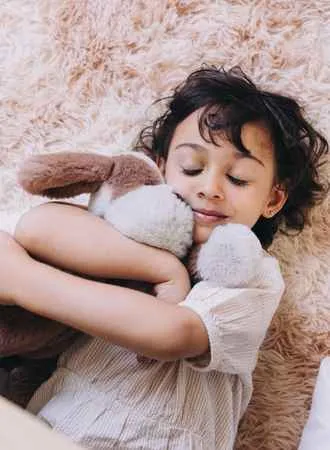
Emotional Development
Stuffed animals play an important role in a child’s emotional development. They provide a sense of comfort and security, especially during times of stress. Children often form strong emotional attachments to their plush animals, which can help them develop empathy and compassion for others.
Stuffed animals can also serve as a source of comfort when a child is feeling sad or lonely. They provide a physical object for a child to hold onto, a comfort object which can be especially helpful when a parent or adult caregiver is not available. This can help children learn to self-soothe and regulate their emotions.
In addition, stuffed animals can be used to help children learn about emotions and social skills. Children can practice expressing their emotions to their plush animals, which can help them develop their communication and interpersonal skills. Plush animals can also be used to role-play social situations, which can help children learn how to navigate difficult social interactions.
Imaginative Play
Stuffed animals are crucial in encouraging imaginative play in children. They provide children with a sense of comfort and security, allowing them to explore their creativity and imagination. Children often create their own stories and scenarios with their plush animals, which helps them develop their language, social, and emotional skills.
Pretend play with plush toys can also help children develop problem-solving skills. They may create scenarios where their plush animals need help or are in trouble, which allows them to think critically and come up with solutions to help their beloved toys. This type of play also encourages empathy, as children may imagine themselves in their stuffed animal’s situation and develop a sense of compassion for others.
Weighted stuffed animals can also be used as a tool for role-playing. Children can act out different scenarios with their plush animals, such as playing doctor or teacher. This type of play helps children develop their social skills, as they learn how to communicate and interact with others in a fun and safe environment.
Overall, pretend play with plush animals is essential for a child’s development. It allows them to explore their creativity, develop problem-solving skills, and improve their social and emotional skills. Plush animals provide comfort and security, making them the perfect companion for any child’s imaginative adventures.
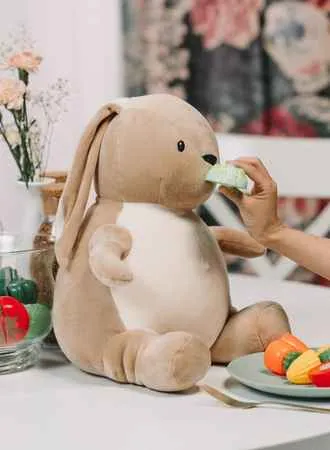
Sentimental Value
Stuffed toy animals have the ability to hold sentimental value and become treasured possessions that carry a wealth of memories and emotions. They can hold memories of childhood or remind us of a loved one who has passed away. For example, a stuffed animal given as a gift by a grandparent can hold a special place in the heart of the child who received it. These stuffed toy animals can become a source of comfort and nostalgia, taking us back to a time when we felt safe and loved.
Stuffed toy animals can also become family heirlooms. They can be passed down from generation to generation, carrying with them the memories and stories of each owner. In fact, some families have a tradition of giving a specific stuffed animal to each new baby born into the family. These stuffed animals become a symbol of family and tradition, and can hold a special place in the family’s history.
One of the most famous examples of a stuffed animal becoming a cherished family heirloom is the beloved Teddy Bear. The Teddy Bear was named after President Theodore Roosevelt, who refused to shoot a bear cub on a hunting trip. The story of the Teddy Bear’s creation quickly spread, and soon stuffed bears became a popular toy for children. The Teddy Bear has since become a symbol of childhood, comfort, and nostalgia. Many people still have their childhood Teddy Bears, and some even collect them as adults.
Stuffed animals can also hold sentimental value for adults. A stuffed animal given as a gift from a loved one can become a cherished possession, reminding us of the person who gave it to us. Stuffed toy animals can also hold memories of a particular time or event in our lives. For example, a stuffed animal purchased on a special trip can remind us of the memories we made on that trip.
In addition to holding sentimental value, stuffed toy animals can also provide comfort during times of grief or loss. A stuffed animal can become a source of comfort and companionship when we are feeling alone or overwhelmed. Some people find comfort in holding or sleeping with a stuffed animal at night when they are experiencing anxiety or stress.
Overall, stuffed toy animals have the ability to hold sentimental value and become treasured possessions that carry a wealth of memories and emotions. From childhood companions to family heirlooms, these soft and cuddly toys have the power to connect us to our past and provide comfort in the present.
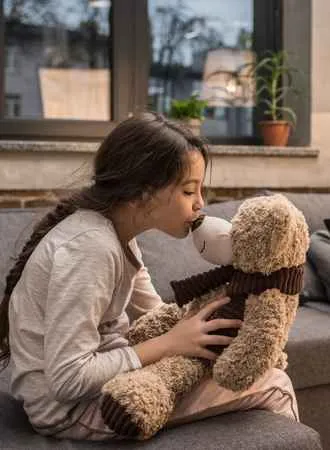
The Healing Power of Stuffed Animals
Stuffed animals can have a profound impact on our psychological state and overall well-being. For children and adults alike, stuffed toy animals can serve as transitional objects, providing a sense of comfort and security during times of stress or anxiety.
Studies have shown that children who have a favorite stuffed animal security blanket, pillow or toy tend to have lower levels of stress and anxiety than those who do not. These comfort objects can provide a sense of security and stability, helping children to cope with traumatic experiences such as hospitalization or separation from loved ones.
For trauma survivors, stuffed toy animals can also serve as a form of re-parenting. By holding and nurturing a stuffed animal, individuals can learn to provide themselves with the comfort and care they may have lacked in their early years of life. This can be especially helpful for individuals who struggle with low self-esteem or separation anxiety.
Even for adults, stuffed toy animals can have a powerful impact on mental health. Many adults report that they still sleep with a childhood teddy or other stuffed companion, and that it provides them with a sense of comfort and security. For some, the act of cuddling with a stuffed animal can be a form of self-care, helping to ease feelings of loneliness and anxiety.
In fact, some adults and kids have even turned to weighted stuffed toy animals to help them fall asleep and stay asleep. These plush toys are designed to provide a sense of pressure and grounding while sleeping, much like a hug or a comforting touch. The added weight can also help to release tension in the body, leading to a more restful night’s sleep.
Stuffed toy animals can also serve as a form of pretend play for children. By creating stories and scenarios with their furry friends, children can explore their own feelings and emotions in a safe and supportive environment. This type of play can be especially helpful for children who struggle with social skills or low self-esteem.
But it’s not just children who benefit from pretend play with stuffed animals. Many adults also find comfort in creating elaborate stories and adventures with their stuffed friends. Whether it’s a teddy bear, a doll, a furry friend, a doll or a plush toy, these inanimate objects can become a source of joy and creativity in our lives.
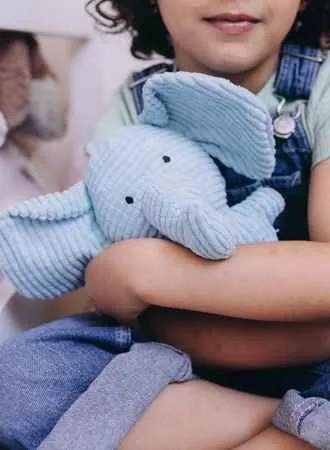
Stuffed Animals and Physical Health
While the emotional benefits of stuffed animals are well-documented, they can also have a positive impact other humans and on physical health. For example, studies have shown that simply petting a stuffed animal can lower stress hormone levels in the body.
Additionally, some individuals have turned to stuffed animals as a way to motivate themselves to exercise. By setting a weight loss or fitness goal, and then rewarding themselves with a new stuffed friend for each milestone or weight gain they reached, they can stay motivated and on track.
And for kids and those who struggle with mobility issues, stuffed animals can serve as a form of physical therapy. Basic sewing skills can be used to create weighted toys that can be used for exercises such as lifting, squeezing, and stretching. This can be especially helpful for individuals with conditions such as arthritis or Parkinson’s disease.
FAQS on Why Are Stuffed Animals So Comforting
Why are Stuffed Animals So Comforting?
Stuffed toy animals provide a sense of comfort and security before bed, for many people. The soft, plush texture and familiar shape can help ease anxiety and provide a source of relaxation. They can be used as a tool for meditation, calming nerves before bed, or simply to provide a cozy snuggle.
Be aware of the factors to consider to help you pick the best stuffed animal for your little one.
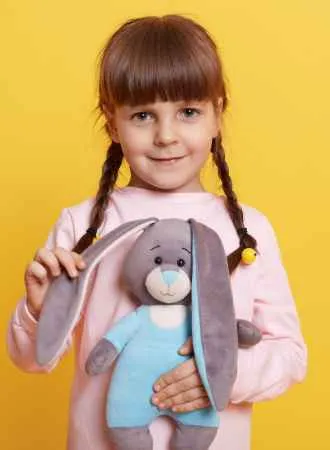
Why are Stuffed Animals Good for Mental Health?
Stuffed toy animals have been known to have therapeutic benefits for people struggling with mental health issues. They can provide a sense of comfort and companionship, and can serve as a transitional object to ease separation anxiety. Additionally, stuffed toy animals can be used as a tool in cognitive-behavioral therapy and play therapy.
Is a Stuffed Bear a Toy?
Yes, a stuffed bear is considered a dog and a toy. However, it is not just any toy, but one that holds sentimental value to parents and can become a lifelong companion. As with any toy, it’s important to consider your child’s developmental age in order to pick a safe soft toy for baby.
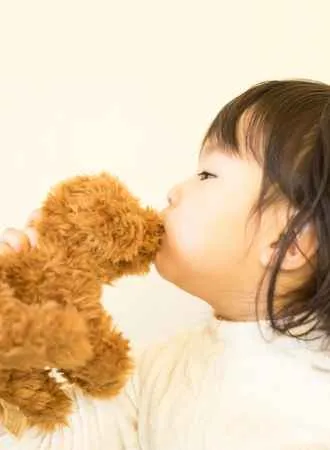
What is Considered a Stuffed Animal?
A stuffed animal is any soft, plush toy that is designed to resemble an animal. This can include teddy bears, dogs, cats, and many other types of animals.
What are Stuffed Toys Called?
Stuffed toys are also referred to as plush toys, soft toy cuddly toys, or soft toys.
Which is Correct: Stuff Toy or Stuffed Toy?
The correct term is “stuffed toy.” “Stuff toy” is an incorrect variation of the term.
What Skills Can We Learn from Stuffed Animals?
Stuffed animals can teach children important life skills, such as empathy, nurturing, and responsibility. Through pretend play with their stuffed companions, children can learn how to care for another being and develop a sense of compassion. Additionally, basic sewing skills can be learned by repairing and maintaining the stuffed animals.

